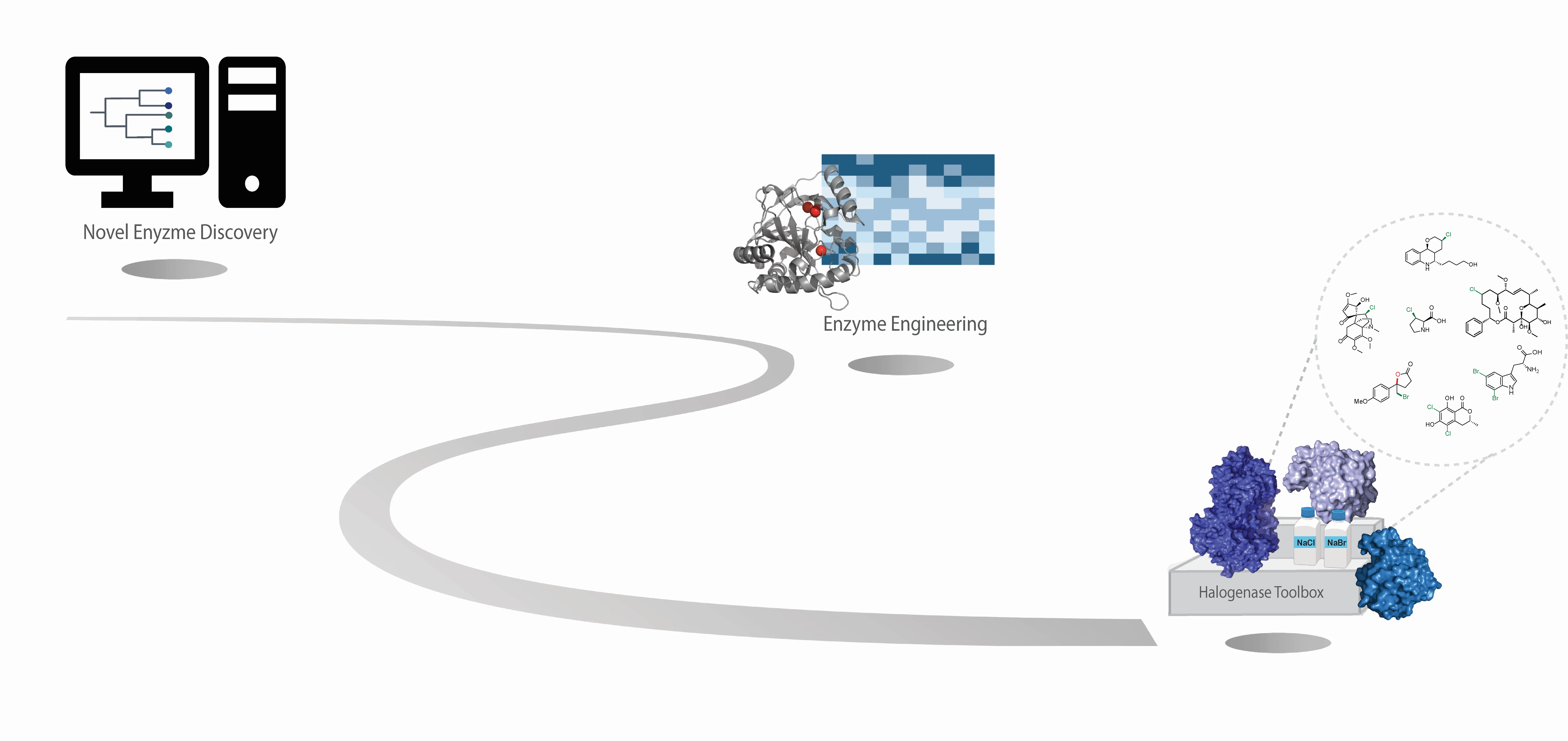Halogenases for the synthesis of small molecules
We are happy to share our latest publication on enzymatic halogenation – a rapidly developing tool for synthetic chemistry.

Halogenation can not only significantly alter a molecule’s property, but may impact bioactivity, metabolism, or pharmacokinetics. Among the bestselling small molecule drugs in 2021 more than 40% contain at least one halogen atom. Likewise, more than 96% of all pesticides launched since 2010 contain a halogen atom. In addition, halogens are privileged substituents in the synthesis of biological active ingredients. Introducing a halogen atom into a chemical scaffold creates a handle that can be further modified e.g., by chemo-enzymatic cascades.
In our review published in Current opinion in Green and Sustainable Chemistry we summarize recent advances in the field of halogenation using wildtype and engineered halogenases and give examples for building block derivatization, functionalization of complex molecules and describe bio-and chemocatalytic cascades.
Reference
Halogenases for the synthesis of small molecules E. Hegarty, J. Büchler & R. M. Buller. Curr. Opin. Green Sustain. Chem. (2023) 41, 100784. https://doi.org/10.1016/j.cogsc.2023.100784